LIBE lead MEP fails to find silver bullet for CSA Regulation
On 19 April 2023, the lead MEP on the proposed CSA Regulation, Javier Zarzalejos (EPP), published his draft report. Whilst we agree with MEP Zarzalejos about putting privacy, safety and security by design at the heart, many of his changes may pose a greater risk to human rights online than the European Commission’s original text.
Filter resources
-
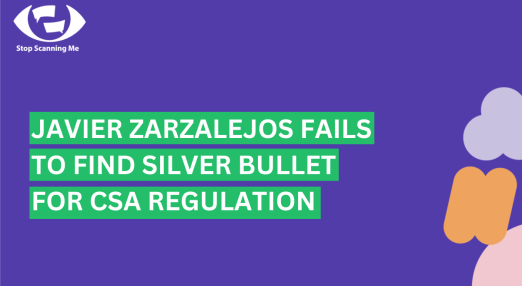
LIBE lead MEP fails to find silver bullet for CSA Regulation
On 19 April 2023, the lead MEP on the proposed CSA Regulation, Javier Zarzalejos (EPP), published his draft report. Whilst we agree with MEP Zarzalejos about putting privacy, safety and security by design at the heart, many of his changes may pose a greater risk to human rights online than the European Commission’s original text.
Read more
-
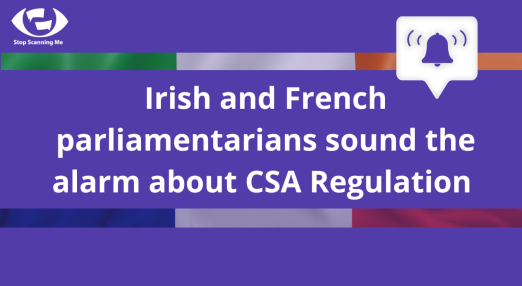
Irish and French parliamentarians sound the alarm about EU’s CSA Regulation
The Irish parliament’s justice committee and the French Senate have become the latest voices to sound the alarm about the risk of general monitoring of people’s messages in the proposed Child Sexual Abuse (CSA) Regulation.
Read more
-

EU plans allow Big Tech to exploit your medical records, without permission
The EHDS would make physicians and other medical professionals complicit in the forced commercialisation and monetisation of every aspect of your health without ever asking for your consent. It would destroy the Hippocratic oath of confidentiality by which every medical professional is supposed to be bound.
Read more
-
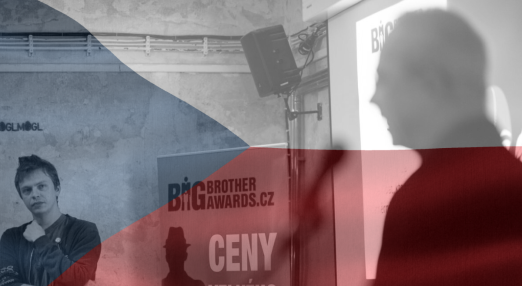
Police cameras won Big Brother Awards in Czechia
EDRi member in the Czech Republic Iuridicum Remedium handed out its anti-prizes for the eighteenth time in March 2023. 2022 was exceptional: one of the "awardees" came for the award, and the others had to express themselves under the pressure from the media.
Read more
-

France becomes the first European country to legalise biometric surveillance
EDRi member and Reclaim Your Face partner La Quadrature du Net charts out the chilling move by France to undermine human rights progress by ushering in mass algorithmic surveillance, which in a shocking move, has been authorised by national Parliamentarians.
Read more
-
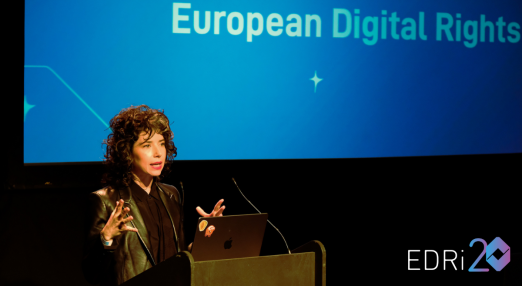
Signal’s Meredith Whittaker voices EDRi’s concerns with the CSA Regulation
Meredith Whittaker, the President of the Signal Foundation, delivered the closing keynote speech at EDRi’s 20th-anniversary celebration in March 2023. The tech professional focused on the “recent spate of regulatory proposals and misguided tech fixes [like the EU’s Child Sexual Abuse Regulation] that offer false and surveillant solutions to complex social problems – solutions that always seem to lump the right to privacy in with malfeasance, and offer to address bad actions by eliminating privacy.”
Read more
-
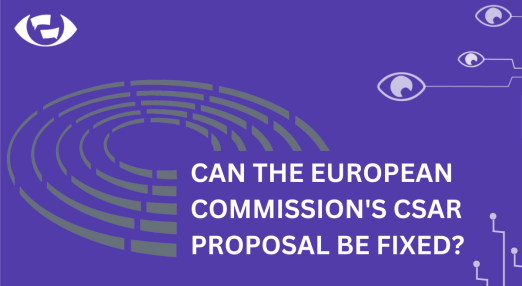
Internal market MEPs wrestle with how to fix Commission’s CSAR proposal
The European Union’s proposed CSA Regulation (Regulation laying down rules to prevent and combat child sexual abuse) is one of the most controversial and misguided European internet laws that we at EDRi have seen. Whilst aiming to protect children, this proposed law from the Commissioner for Home Affairs, Ylva Johansson, would obliterate privacy, security and free expression for everyone online.
Read more
-

Health and digital rights organisations urge EU lawmakers to uphold patients’ rights in new health data law
European lawmakers must ensure patients have control over their private medical records by adding an ‘opt-in’ consent requirement for the secondary use of health data under the proposed European Health Data Space (EHDS).
Read more
-
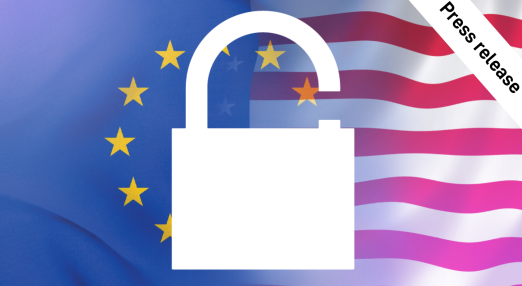
EU-US plan offensive to legitimise police access to data, civil society responds amid growing fears – Press Release
On 6 April 2023, EDRi and 8 partners sent an open letter to the European Commission President Ursula von der Leyen and Vice President Margrethe Vestager, as well Swedish Prime Minister Ulf Kristersson. Through the letter, the organisations called out the clear and deliberate plans to disregard international human rights standards in the EU-US approaches to security in the digitalised society, in particular in regards to end-to-end-encryption.
Read more
-
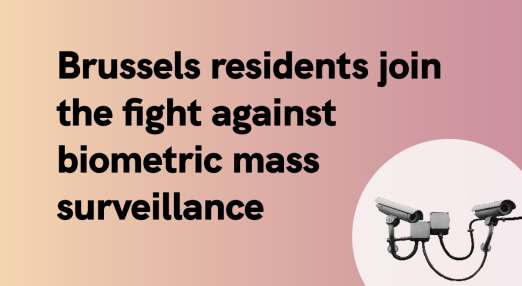
Protect My Face: Brussels residents join the fight against biometric mass surveillance
The newly-launched Protect My Face campaign gives residents of the Brussels region of Belgium the opportunity to oppose mass facial recognition. EDRi applauds this initiative which demands that the Brussels Parliament ban these intrusive and discriminatory practices.
Read more
-

Position Paper: EU’s proposed health data regulation ignores patients’ privacy rights
EDRi’s new position paper outlines how the European Commission’s proposal for a European Health Data Space, in an attempt to make use of people’s health data, would sabotage the rights of patients to make decisions about their private medical information.
Read more
-
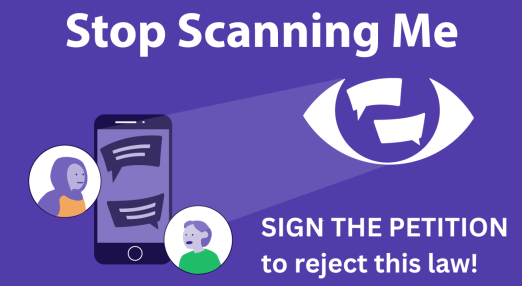
Petition: Children deserve a secure and safe internet
Join us in our fight against the EU's attempt to scan every move we make online. Sign the petition.
Read more
